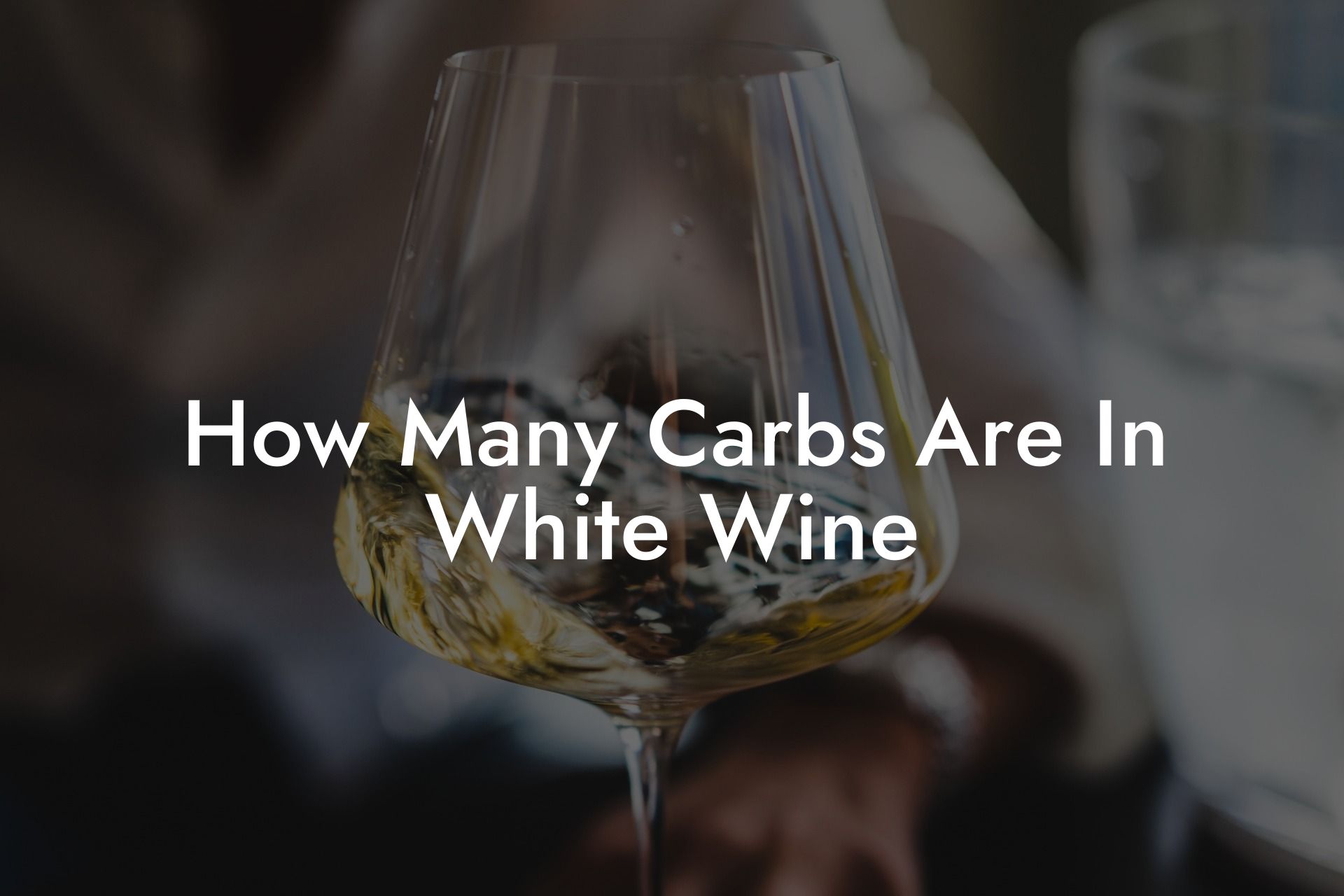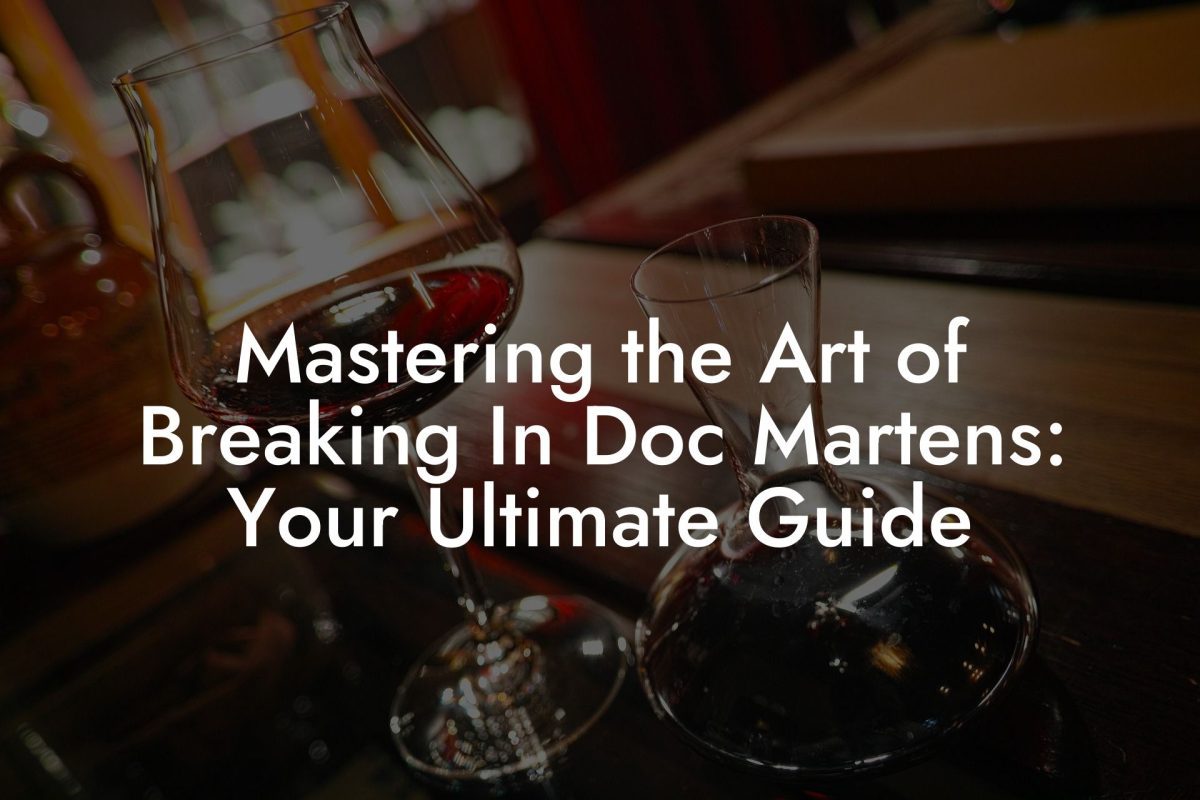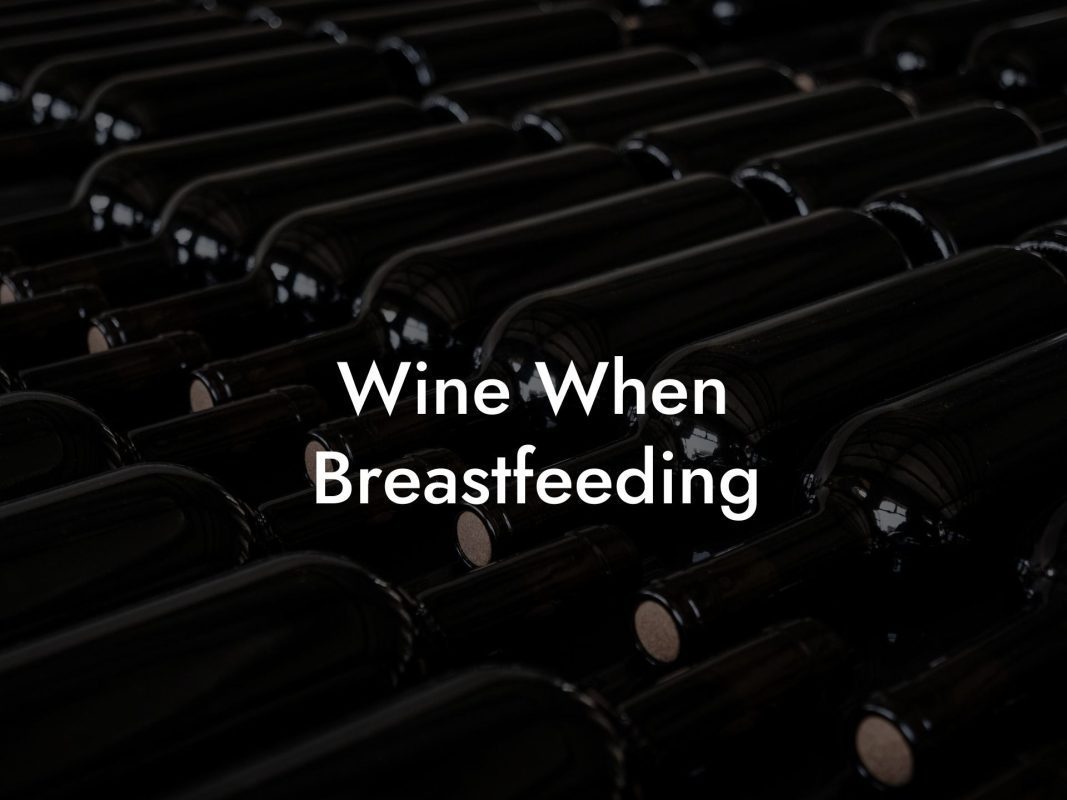Are you a fan of white wine but also keeping an eye on your carb intake? You're not alone! Many wine lovers are curious about the carb content in white wines and how they can impact their diet and lifestyle. In this article, we'll dive into the world of carbohydrates in white wine, and help you make informed decisions that suit your tastes and health goals. Get ready to raise your glass and toast to your newfound wine knowledge!
How Many Carbs Are In White Wine Table of Contents
Understanding Carbohydrates in Alcohol Beverages
Carbohydrates, or carbs, are one of the primary sources of energy for our body, found in foods such as bread, rice, fruits, and vegetables. In alcoholic beverages, carbs mostly come from the sugar used during the fermentation process that turns the sugar into alcohol. The residual sugar that remains after this process is a significant source of carbs in wine, beer, and spirits.
Carb Content in White Wine
White wine is typically made from white or green grapes, and the carb content can vary depending on factors such as grape variety, fermentation process, and residual sugar content. Generally, dry white wines tend to have lower carb content than sweet or semi-sweet ones. Here's a quick breakdown of the carb content in different types of white wine:
Do You Want to Win a Free Bottle of Wine?
Don't miss out on the opportunity to win a free bottle of wine every week.
Enter our weekly prize draw today!
Dry White Wine (e.g., Sauvignon Blanc, Chardonnay)
- Serving size: 5 ounces (150ml)
- Carbs: 3-4 grams
These dry white wines usually have fewer carbs per serving, making them a better choice for those watching their carb intake.
Semi-Sweet White Wine (e.g., Riesling, Gewürztraminer)
- Serving size: 5 ounces (150ml)
- Carbs: 6-12 grams
Semi-sweet white wines have a moderate amount of carbs, so consider them an occasional treat if you're trying to minimize carb consumption.
Sweet White Wine (e.g., Moscato, Ice Wine)
- Serving size: 5 ounces (150ml)
- Carbs: 20-30 grams
These sweet white wines have the highest carb content and are best enjoyed in moderation, especially for those following a low-carb diet.
How To Choose a Low-Carb White Wine
If you're trying to limit your carb intake, follow these simple tips to make smarter wine choices:
- Opt for dry white wines, as they typically have the lowest carb count.
- Look for wines with lower alcohol content because higher alcohol tends to come with higher residual sugar.
- Check the label or ask your wine retailer about the wine's residual sugar content. The lower the sugar content, the fewer carbs the wine has.
How Many Carbs Are In White Wine Example:
Imagine that you're having a dinner party and want to serve a white wine that accommodates your guests who are following a low-carb diet. You can choose a dry Sauvignon Blanc or Chardonnay with an alcohol content of 12-13%. When checking the label, look for a wine with a residual sugar content of less than 3 grams per liter. This way, you'll be offering a low-carb white wine option that everyone can enjoy without compromising on taste or quality.
Now you're equipped with the knowledge to make informed decisions about the carb content in white wine! Consider your preferences and dietary needs when selecting a bottle, and most importantly – enjoy the experience of sipping your favorite white wine. If you found this article helpful, be sure to share it with fellow wine lovers and explore more informative guides on the Black Wine Club website. Cheers to discovering delicious low-carb white wines that suit your taste and lifestyle!
Do You Want to Win a Free Bottle of Wine?
Don't miss out on the opportunity to win a free bottle of wine every week.
Enter our weekly prize draw today!












